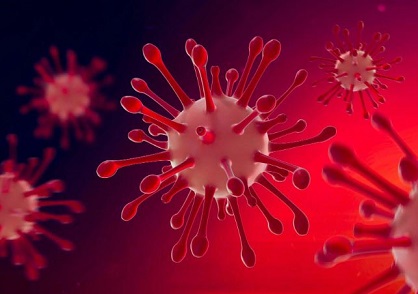New insights into the role of IL-1Beta in inflammation and COVID-19 disease severity
Nikhil Prasad Fact checked by:Thailand Medical News Team Aug 30, 2024 7 months, 3 weeks, 6 days, 10 hours, 51 minutes ago
Medical News: COVID-19 has posed unprecedented challenges to global health, with its wide range of symptoms from mild cases to severe, life-threatening conditions. Researchers worldwide are striving to understand the factors that contribute to the severity of this disease, aiming to develop effective treatments to mitigate its impact. A recent study by researchers from the Walter and Eliza Hall Institute of Medical Research-Australia and the University of Melbourne offers new insights into the role of inflammation in severe COVID-19, focusing particularly on the cytokine 1 Interleukin-1Beta or IL-1β. This
Medical News article delves into the findings of this study and explores their potential implications for future therapeutic strategies.
 New insights into the role of IL-1Beta in inflammation and COVID-19 disease severity
The Role of IL-1β in COVID-19: Key Findings
New insights into the role of IL-1Beta in inflammation and COVID-19 disease severity
The Role of IL-1β in COVID-19: Key Findings
The study highlights IL-1β as a critical factor in driving severe COVID-19, independent of traditional inflammasome and pyroptotic signaling pathways. Using gene-targeted mouse models, researchers found that the deletion of inflammasome components and pyroptotic proteins did not significantly impact disease outcomes or viral loads. Interestingly, while the absence of IL-18, another pro-inflammatory cytokine, did not confer protection against severe disease, the loss of IL-1β markedly ameliorated disease severity and improved survival rates in older mice.
Understanding the Mechanisms: Inflammasomes and Pyroptosis
Inflammasomes, such as NLRP3 and NLRP1, are known to activate caspases, which in turn process cytokines like IL-1β and IL-18 into their active forms. These cytokines are then released, promoting inflammation. However, the study found that in the context of SARS-CoV-2 infection, the classical inflammasome and pyroptosis pathways were not essential for disease progression. Mice deficient in inflammasome components, such as NLRP3, NLRP1, and the adaptor protein ASC, exhibited similar disease severity and viral loads as wild-type mice. Even the deletion of Gasdermin D (GSDMD), a key protein involved in pyroptosis, did not reduce the release of pro-inflammatory cytokines or affect disease outcomes.
The Unexpected Role of IL-1β
What sets this study apart is its revelation that IL-1β plays a crucial role in severe COVID-19, independent of the previously assumed pathways. This cytokine's release was found to be largely independent of the inflammasome and pyroptotic pathways. The study demonstrated that while IL-18 had minimal impact, the absence of IL-1β significantly reduced viral loads and disease severity, particularly in older animals. This suggests that targeting IL-1β could be a promising strategy for treating severe COVID-19, especially in vulnerable populations.
Histological Insights: The Impact of IL-1β on Lung Pathology
Histological analysis provided further evidence of IL-1β's role in disease severity. Infected
wild-type mice showed severe lung damage, including multifocal alveolitis, pneumonia, and perivasculitis. In contrast, IL-1β-deficient mice exhibited less severe lung pathology, with reduced signs of inflammation and tissue damage. These findings indicate that IL-1β significantly contributes to the lung damage associated with severe COVID-19, making it a potential target for therapeutic intervention.
Age-Related Differences in Disease Severity
The study also explored how the absence of IL-1β affects disease severity in older animals. COVID-19 is known to be more severe in older individuals, a pattern that was replicated in the mouse model. Interestingly, while younger IL-1β-deficient mice showed significant protection against severe disease, this protective effect was less pronounced in older animals. Despite this, older IL-1β-deficient mice still had lower viral loads and less severe lung pathology than their wild-type counterparts, highlighting the potential benefits of targeting IL-1β in older patients with COVID-19.
Implications for COVID-19 Treatment: Targeting IL-1β
The findings from this study suggest that IL-1β plays a pivotal role in the pathogenesis of severe COVID-19, independent of traditional inflammasome and pyroptotic pathways. This opens up new avenues for therapeutic strategies that specifically target IL-1β, potentially offering a more effective way to reduce inflammation and improve outcomes for patients with severe COVID-19. However, the study also indicates that a more comprehensive approach may be needed, as blocking IL-1β alone was not sufficient to completely prevent disease progression, particularly in older animals.
Conclusion: Towards Better Therapeutic Strategies
In conclusion, the study by researchers from the Walter and Eliza Hall Institute and the University of Melbourne provides critical insights into the role of IL-1β in severe COVID-19. By uncovering the cytokine's significant contribution to disease severity, independent of inflammasome and pyroptotic pathways, the research suggests new directions for therapeutic intervention. Targeting IL-1β could be a promising strategy, particularly for older patients who are at higher risk of severe disease. However, further research is needed to explore the most effective ways to modulate IL-1β activity and to develop comprehensive treatments that address the complex pathogenesis of COVID-19.
The study findings were published on a preprint server and are currently being peer reviewed.
https://www.researchsquare.com/article/rs-4826453/v1
For the latest COVID-19 News, keep on logging to Thailand
Medical News.
Read Also:
https://www.thailandmedical.news/news/covid-19-immunology-study-shows-that-sars-cov-2-viral-protein-orf3a-activates-nlrp3-inflammasome-causing-severe-inflammatory-responses
https://www.thailandmedical.news/news/breaking-covid-19-news-study-finds-that-m6a-methylation-plays-a-key-role-covid-19-infections
